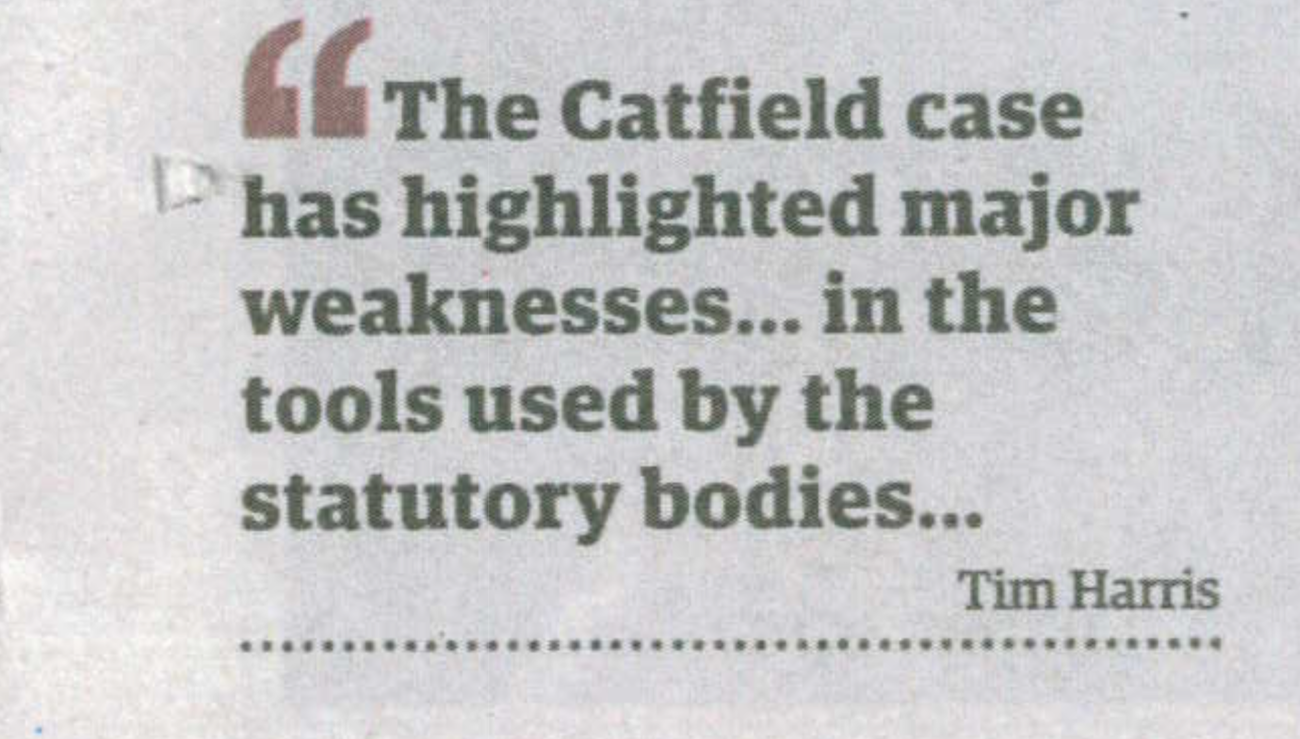
D-Day now approaching in high stakes battle over fen
To landowner Tim Harris and his wife Geli it has been a frustrating battle with officialdom to save what the Environment Agency (EA) describes as “the finest unpolluted valley fen in western Europe”.
However, to farmers around Catfield, the long-running dispute over whether two water abstraction licenses should be renewed touches on the very viability of their family businesses and the important issue of jobs for villagers.
Now six years after Mr Harris first raised the issue of Catfield Fen drying out – and following endless claims and counter-claims and countless experts’ reports – the EA has at last reached a landmark stage in the decision-making process.
It has announced, coincidentally or not, precisely a week after Mr Harris put the body on notice that he was to begin judicial review proceedings in seven days unless there was an end to the delays, that it will publish its “minded to” decision on November 17, precipitating a four-week public consultation period. The EA then hopes to make its final decision in mid-February.
The stakes are high for both sides in an increasingly bitter battle that has polarised the interests of the farmers and conservationists and significantly, raised questions over the suitability of the EA’s hydrological model in helping to determine future water abstraction licence decisions in sensitive Broadland environments.
Mr Harris, whose fight has been supported by the RSPB which manages the part of Catfield Fen neighbouring his estate, believes that evidence he has amassed from a top UK hydrologist and a world-leading Dutch ecologist points compellingly to over-abstraction of water being at the root of subtle, but increasingly rapid, changes taking place in the fen, a site supposedly protected by the highest level of EU conservation legislation.
And he warned that his experts had told him that the habitat may already have reached a “tipping point” in that the loss of plants associated with wetter fens might not be possible to reverse.
He claimed it was part of a bigger problem of fens drying out across Broadland threatening such iconic species as fen orchid, swallowtail butterfly and Norfolk Hawker dragonfly – and consequently undermining the nature-dependent Broads tourism economy.
Mr Harris said: “The Catfield case has highlighted major weaknesses, at least as far as the Broads is concerned, in the tools used by the statutory bodies to monitor the effects of water abstraction.
“It raises the fundamental question, ‘can the public rely on the statutory bodies to protect our leading natural sites?’.”
Farmer Andrew Alston, who is applying for the abstraction licence renewals, remains adamant that changes taking place to the fen are unrelated to water abstraction.
He said: “There is no shortage of water in Catfield – 10 months a year we are pumping water off the land via the IDB pumps.”
Farming neighbour Rodrick Shearing, 71, who uses water from Mr Alston’s boreholes to grow potatoes, said the whole issue was causing a lot of strain.
He said: “My family has been farming here for seven generations; at harvest time, we employ up to 12 local people and in the spring we employ a smaller number preparing the land for planting.”
Their primary business, growing potatoes and pre-packing them for supermarkets, relied on irrigation to achieve the necessary high quality and good skin finish.
Mr Shearing, who farms with his son Jeremy, said the uncertainty was affecting the business and investment decisions.
“We have invested well over £500,000 over the last two years on potatoes, including a new self-propelled potato harvester we bought for £380,000,” he said.
NFU: Businesses need a secure water supply
The NFU’s national water resources specialist, Paul Hammett, highlighted the fact that farm businesses within the Broads employ 8,500 people and support many more jobs in areas such as food processing, haulage, farm equipment suppliers and business advice.
He said: “These businesses need a secure supply of water to grow our food but farmers also recognise that a balance needs to be struck with protecting habitats of international importance, including Catfield Fen.
“The agency’s decision-making process has been wide-ranging, detailed, lengthy and costly.
“This is perhaps not surprising given the complexity of the issues to be addressed, but it does place the farmers involved under tremendous pressure. Growing food is a long-term occupation and farms need to be able to take long-term decisions so that their businesses can thrive.
“After four years of investigation and evidence gathering, nobody can show that abstraction is causing any harm to Catfield Fen. The problem lies with the EU rules which say that’s not good enough – the precautionary principle means that the farmers face the extreme evidential standard of proving that they are not having an impact on the local site.”
